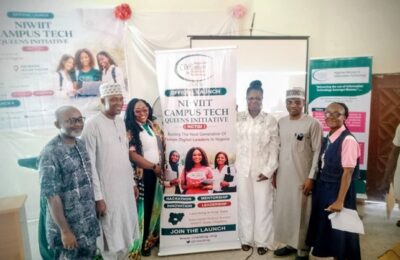The worst threat from men of hell
May not be their actions cruel
far worst that we [the coming generation] learn their way
and behave more fierce than they.
“Chinua Achebe: Anthills of the Savannah.”
Yesterday, it was Joy Nunieh, today, it is @Natasha Akpoti. tomorrow it might be your wife or daughter. There is an elephant in this room. and we must deal with it.
I recall an evening in September 2018, as I lay in my hotel room at the Vienna Hotel in Virginia, near Washington, D.C. The flowers outside swayed in the pre-spring breeze, indifferent to the political storm brewing inside the U.S. Congress in nearby Washington DC. I remember watching the TV live session, as Christine Blasey Ford, a middle-aged professor of psychology and an obvious Democratic Party activist, accused then SCOTUS-nominee Brett Kavanaugh of sexually assaulting her in the summer of 1982—as far back as 26 years prior. The U.S. Congress, in its wisdom, gave her a fair hearing and after weeks of rigorous scrutiny, Brett Kavanaugh was confirmed.
From public offices to universities, from the sacred chambers of justice to churches, our daughters and wives have become prey to men of influence in our public institutions. Whether as Senators or House Members, Ministers or Directors, Priests/Church ministers or Imams, the story is the same. Natasha, God bless her soul, is bold enough to bring this to the fore. Joy Nunieh also did, but we bulked in cowardice. History would not forgive us if we fail Natasha, for that would mean feeding our daughters to the predators.
The key takeaway here is that the U.S. Senate, despite suspecting the accusation was false, still ensured that justice was both done and seen to be done—for the protection of women.
I stand with Natasha—not necessarily because of the truth or falsehood of her claims, but because the law must take its fair course. There was absolutely no justification for the Senate President to preside over her case when she brought it before the Senate. Common sense should have prevailed, and the Deputy Senate President should have taken charge instead.
My issue with Natasha’s case is not whether her claim is true or false, but rather how sloppily it was handled. If I had daughters, this would send chills down my spine. The message is clear: Nigeria is a dangerous place for women. If someone as wealthy, well-connected, and highly placed as Natasha cannot get a fair hearing, then who can?
There is something devilish about it, that despite the plethora of the free women on the streets, many highly placed public servants, legislators, religious ministers, and money bags would press, backmail and punish married women and girls for rejecting their advances. Worst of all, those who have been wronged cannot obtain justice because the institutions have been hijacked by “big men.”
This problem extends beyond the National Assembly—it is embedded in all of Nigeria’s institutions. Our wives and daughters endure countless indignities, and the stories we hear reek of deep injustice. Many men, when confronted with this reality, are forced to swallow their pride and accept defeat because our institutions are weak, and powerful men who feed fat on our commonwealth, use it to ride roughshod on the rights and dignity of the less endowed.
Barrack Obama in his address to the Ghana parliament in 2009, declared, “In the 21st century, capable, reliable and transparent institutions are the key to success – strong parliaments and honest police forces; independent judges and journalists; a vibrant private sector and civil society.” Concluding he said that in Africa, the rule by the “big men” must give way to the rule by strong institutions.
All through history, citizens surrender their right to self-preservation into the common pool of institutions but over time these institutions get hijacked by a self-serving few when the people abandon their sacred obligation to protect the foundational ideals on which they were built. The fortunes of societies are determined by the faith of its citizens in its institutions of justice or its lack thereof. When a people cannot obtain justice in their body politic or society they will look for it elsewhere or seek to dismantle the framework that has proved incapable of guaranteeing it.
This is the elephant in the room, and Natasha’s case offers us the great opportunity to confront it now.
– Uzodinma Cosmas




